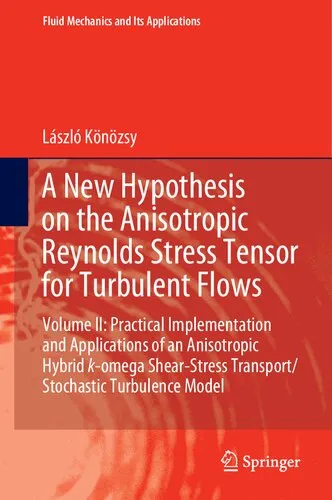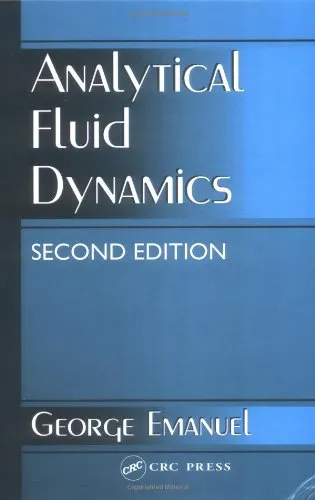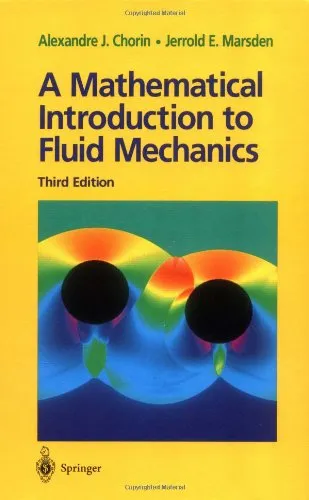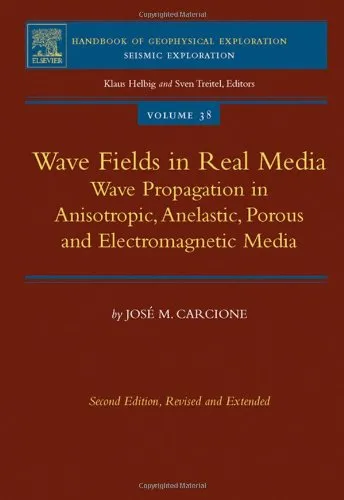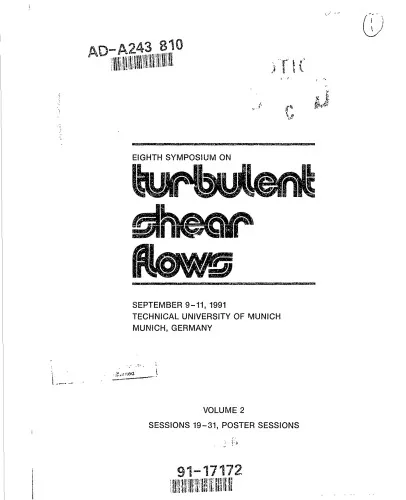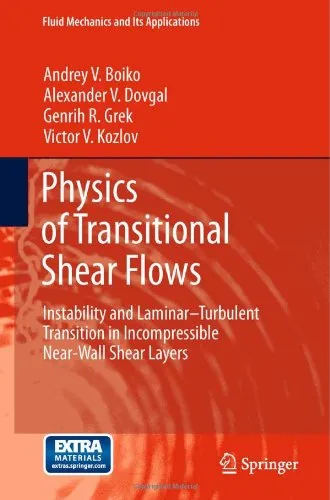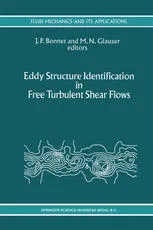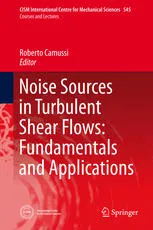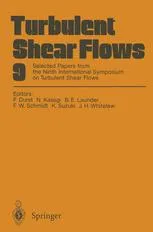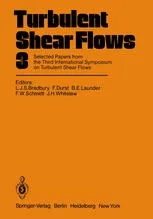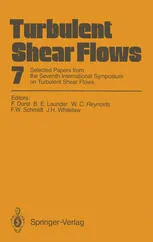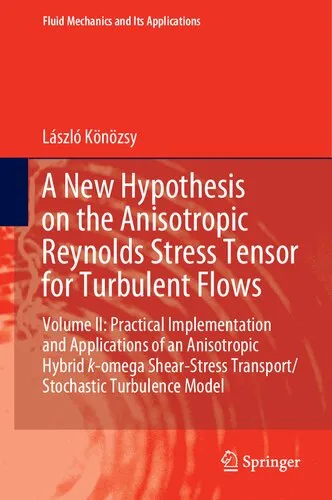A New Hypothesis on the Anisotropic Reynolds Stress Tensor for Turbulent Flows: Volume I: Theoretical Background and Development of an Anisotropic Hybrid k-omega Shear-Stress Transport/Stochastic Turbulence Model
4.5
Reviews from our users

You Can Ask your questions from this book's AI after Login
Each download or ask from book AI costs 2 points. To earn more free points, please visit the Points Guide Page and complete some valuable actions.Related Refrences:
This self-contained, interdisciplinary book encompasses mathematics, physics, computer programming, analytical solutions and numerical modelling, industrial computational fluid dynamics (CFD), academic benchmark problems and engineering applications in conjunction with the research field of anisotropic turbulence. It focuses on theoretical approaches, computational examples and numerical simulations to demonstrate the strength of a new hypothesis and anisotropic turbulence modelling approach for academic benchmark problems and industrially relevant engineering applications. This book contains MATLAB codes, and C programming language based User-Defined Function (UDF) codes which can be compiled in the ANSYS-FLUENT environment. The computer codes help to understand and use efficiently a new concept which can also be implemented in any other software packages. The simulation results are compared to classical analytical solutions and experimental data taken from the literature. A particular attention is paid to how to obtain accurate results within a reasonable computational time for wide range of benchmark problems. The provided examples and programming techniques help graduate and postgraduate students, engineers and researchers to further develop their technical skills and knowledge.
Free Direct Download
You Can Download this book after Login
Accessing books through legal platforms and public libraries not only supports the rights of authors and publishers but also contributes to the sustainability of reading culture. Before downloading, please take a moment to consider these options.
Find this book on other platforms:
WorldCat helps you find books in libraries worldwide.
See ratings, reviews, and discussions on Goodreads.
Find and buy rare or used books on AbeBooks.
1306
بازدید4.5
امتیاز0
نظر98%
رضایتReviews:
4.5
Based on 0 users review
Questions & Answers
Ask questions about this book or help others by answering
No questions yet. Be the first to ask!
